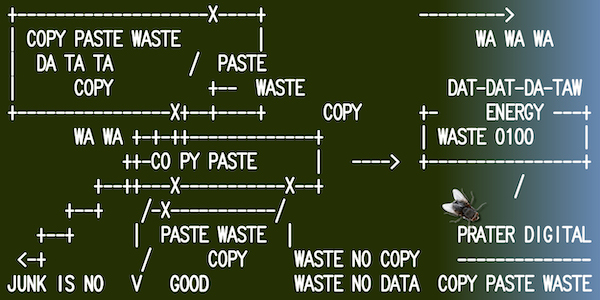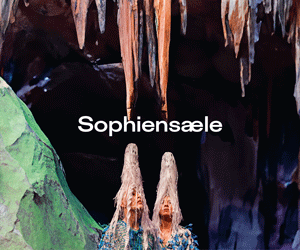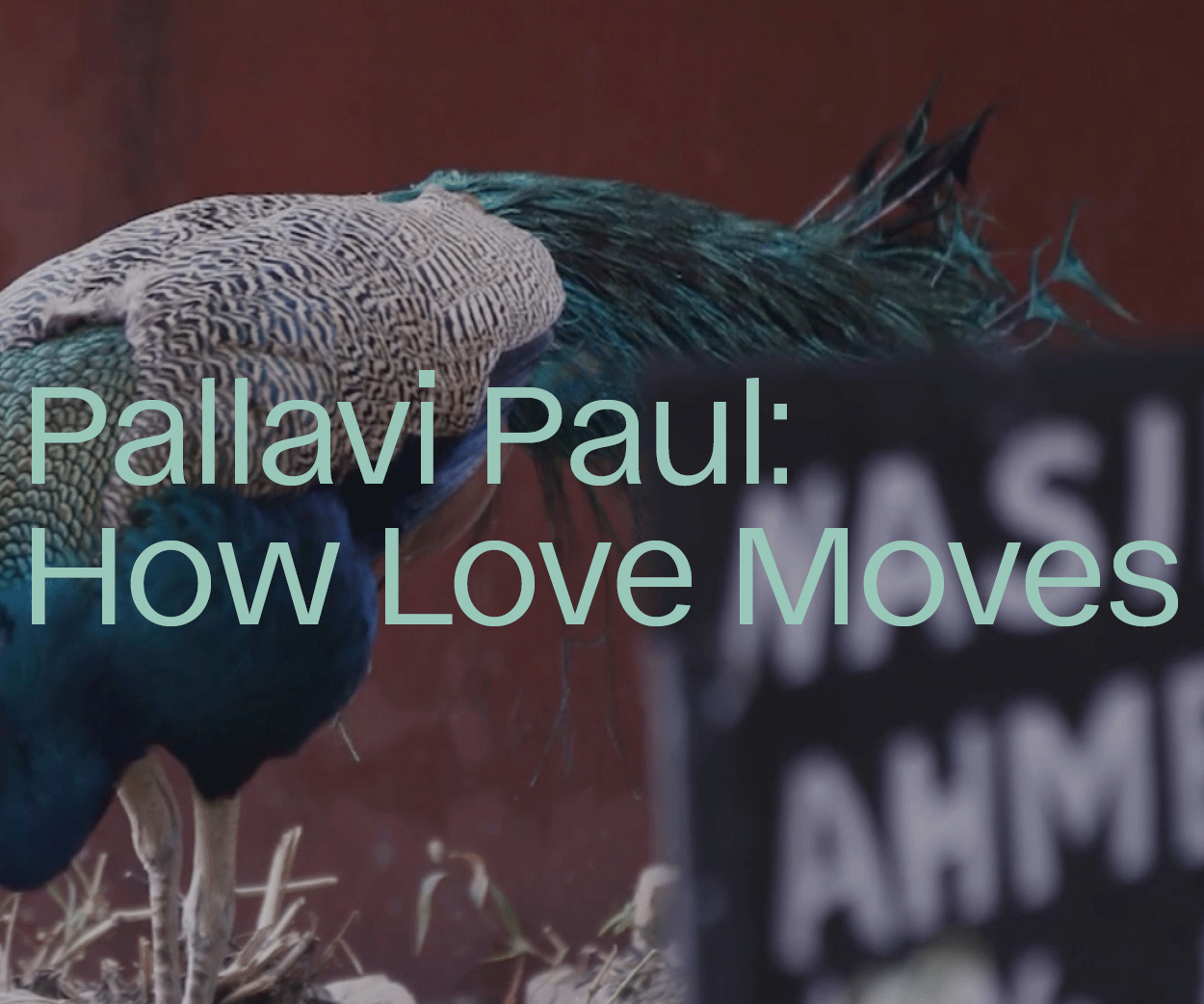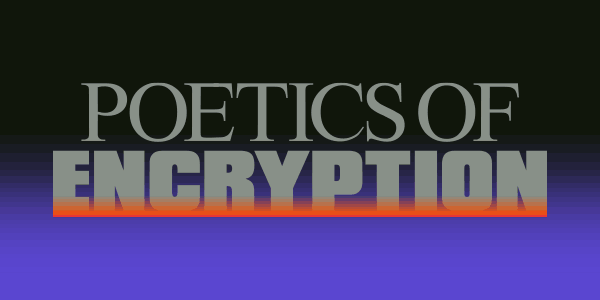Apr. 25, 2019
As a lead-up up to Gallery Weekend and on the periphery of its programming, renowned champagne house Ruinart opened an exhibition showcasing its most recent artistic collaboration, this time with Brazilian artist Vik Muniz. ‘Shared Roots’ was kicked off last night at DNA Galerie in Mitte with an Art Talk, featuring luminaries from the world of champagne and epicurean delights and moderated by Weltkunst Editor-in-Chief, Lisa Zeitz. The panel included Ruinart President Frédéric Dufour, Ruinart Cellar Master Frédéric Panaïotis and Chef de Cuisine Yannic Stockhausen, from Berlin’s Cordo restaurant.
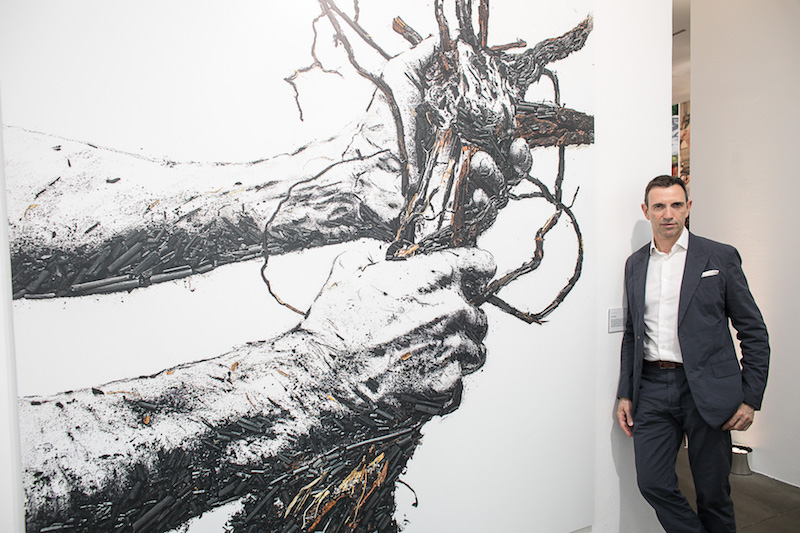
Ruinart Opening of Vik Muniz: ‘Shared Roots’, Frédéric Panaïotis // Photo by Thomas Rafalzyk, Courtesy of Ruinart
While the artist himself wasn’t present at the talk, the panelists offered unexpected insights into the thinking and inspiration behind Muniz’s presented works, which were created site-specifically at the Ruinart vineyards in Reims, France. According to Panaïotis, who spent time touring the grounds with Muniz on his visit to Reims, the artist has long had a fascination with and budding expertise in botany. Zeitz told us that, shortly after moving to New York in the 80s, Muniz signed up for a course on “sketching trees” in the Brooklyn Botanical Gardens, of which he ended up being the only student. This encounter with a private teacher in the gardens launched his lifelong interest in the variations and vicissitudes of plant life.
As Zeitz astutely pointed out, the final hybrid sculpture-drawings that Muniz produced for the ‘Shared Roots’ exhibition have an at-once sad and beautiful quality: he manages to bring out the striving under adverse conditions that is common to the champagne fruit trees, which are grown in chalk-laden land. The trees seem to bear fruit against all odds, and the black-and-white images created by Muniz—made up of both hand-drawn and found tree debris, coal and twigs—are evocative of the struggle inherent in the process. In a video message from the artist accompanying the exhibition, Muniz spoke about the care required in the creation of this series: he wanted to capture a sense that the plant is also an agent of communication. Through its appearance and demeanour, it is trying to tell us something about its environment.

Vik Muniz: ‘Flow Polyptych Part 1’, 2018 // Image courtesy the artist and Ruinart
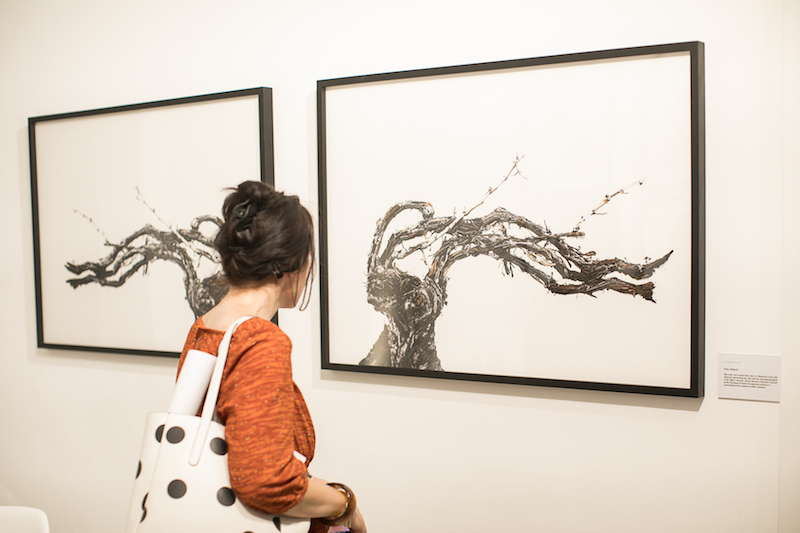
Ruinart Opening of Vik Muniz: ‘Shared Roots’ // Photo by Thomas Rafalzyk, Courtesy of Ruinart
When asked how the presence of the artist affected the way the champagne-makers saw their daily workplace and environment, Dufour and Panaïotis agreed that their preoccupation with the senses of taste and scent means that they often overlook the visual aspects of their job. Muniz brought a renewed interest in the visual qualities of the trees, and transformed that vision into works that captured the essence of the plants’ particular behaviour. The exhibition ‘Shared Roots’ reflects a timely focus on nurturing the differences of environment and climate that certain species need to exist and to thrive.
Ruinart is known for its collaborations with artists, dating back to the first in 1896, when the champagne house invited Czech artist Alphonse Mucha to create a poster for the “maison”. Ruinart also supports 34 art fairs worldwide, and the ‘Shared Roots’ series by Muniz will be shown at about half of them over the course of this year. Beyond these international exhibitions, Muniz has stipulated that one of the works be sold for charity, as part of the more general social engagement characteristic of his art practice.
Additional Info
Exhibition Info
DNA GALERIE
‘Vik Muniz x Ruinart: Shared Roots’
Exhibition: Apr. 25–28, 2019
Opening hours: Thursday, 11am–8pm; Friday & Saturday, 11am–10pm; Sunday, 11am–6pm
Auguststraße 20, 10117 Berlin, click here for map




